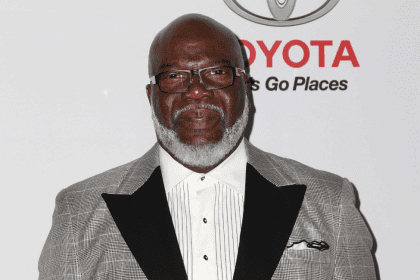Teacher Appreciation Week provides a meaningful opportunity to recognize the profound impact educators have on shaping society, often in ways that extend far beyond their immediate classrooms. Among those deserving special recognition are several prominent African American celebrities whose journeys to success began in education. These individuals brought the skills, perspectives and dedication developed as teachers into careers that would eventually make them household names.
Their stories reveal the surprising connections between effective teaching and achievement in entertainment and politics. The ability to engage audiences, communicate complex ideas and inspire others serves equally well in classrooms and on much larger stages, as these five remarkable individuals demonstrate.
Roberta Flack transformed musical education into Grammy success
Grammy-winning vocalist Roberta Flack, renowned for emotional ballads including “Killing Me Softly with His Song,” began her professional journey as a teacher at just 19 years old. Following her father’s unexpected death, Flack stepped into an educational role teaching both English and music in Farmville, North Carolina, before later continuing her teaching career in Washington, D.C.
Flack maintained a demanding schedule during these years, working as an educator during daytime hours while performing at nightclubs in the evenings. This dual commitment allowed her to develop both her teaching expertise and musical talents simultaneously. Her classroom approach incorporated musical elements to engage students ranging from preschool through high school, making abstract concepts more accessible through rhythmic and melodic techniques.
The communication skills and emotional intelligence developed during her teaching career became evident in her music, where her ability to convey complex feelings through song connected deeply with audiences worldwide. The patience and persistence required in education likely contributed to her resilience in building a music career that would eventually earn multiple Grammy awards and international acclaim.
Barack Obama applied constitutional expertise beyond law school
Before his historic presidency, Barack Obama spent 12 years teaching constitutional law and race theory at the University of Chicago Law School. His teaching approach emphasized critical thinking through Socratic discussion rather than simple information transfer, encouraging students to question assumptions and analyze legal principles from multiple perspectives.
Obama developed a reputation for challenging students with thought-provoking questions about justice, equality and governmental authority—themes that would later define his political career. His classroom style balanced intellectual rigor with accessibility, making complex constitutional concepts understandable while maintaining their nuance and significance.
The communication clarity, persuasive abilities and intellectual framework developed during his teaching years became evident throughout his political career. His capacity to explain complicated policy positions to diverse audiences reflected skills honed in the classroom, where making abstract legal concepts accessible to students was a daily requirement. The constitutional expertise developed as a law professor provided substantive knowledge that informed his approach to governance and executive decision-making.
Jesse Williams brought social awareness from classroom to screen
Actor Jesse Williams, widely recognized for his portrayal of Dr. Jackson Avery on the medical drama Grey’s Anatomy, dedicated six years to teaching in Philadelphia public charter schools after graduating from Temple University. His teaching subjects, American Studies, African Studies and English, reflected his commitment to cultural awareness and social justice.
Williams entered teaching specifically to address educational inequities in underserved communities, using storytelling techniques to make historical and cultural concepts relevant to students’ lives. This educational foundation established patterns of social awareness and advocacy that would continue throughout his entertainment career and public life.
The communication effectiveness and cultural understanding developed during his teaching years became hallmarks of his later work as both an actor and activist. His ability to articulate complex social issues with clarity and conviction stems partly from years explaining difficult concepts to students, demonstrating how classroom skills transfer to broader platforms. Williams consistently acknowledges how teaching shaped his perspective on representation and social responsibility in entertainment.
Mr. T energized physical education before television fame
Before becoming internationally famous for his distinctive mohawk, gold chains and memorable catchphrases in The A-Team and Rocky III, Mr. T worked as a physical education teacher during the 1970s. His dynamic personality and commanding presence made his gym classes memorable experiences for students encountering his unique motivational approach.
While his teaching career was relatively brief compared to his entertainment success, his educational background demonstrated his commitment to youth development before fame. The energetic motivation techniques developed in physical education classes translated effectively to his later entertainment persona, where enthusiasm and distinctive character became his trademark.
His transition from encouraging students in gymnasium settings to motivating television audiences shows the transferable nature of engagement skills developed in educational environments. The physical discipline and confidence he encouraged as a teacher became defining elements of his entertainment career, showing how educational foundations can shape seemingly unrelated professional paths.
Jill Scott incorporated musical innovation into teaching
Before achieving success as a Grammy-winning soul vocalist, Jill Scott worked as a student-teacher in Philadelphia schools, where she developed an innovative approach to education. Scott incorporated singing and melodic techniques into her teaching methodology, helping students memorize and engage with curriculum material through musical association.
Her unconventional teaching methods occasionally faced resistance from traditional educational administrators, eventually contributing to her decision to pursue other career paths. Despite these challenges, her creative approaches left lasting impressions on students who benefited from her willingness to explore alternative learning techniques.
The artistic expression and emotional authenticity that characterized her teaching style became defining elements of her musical career. Scott’s ability to connect with audiences through heartfelt lyrics and soulful delivery echoes the connection she established with students through musical teaching techniques. Her journey demonstrates how educational innovation can translate to artistic success when applied in different contexts.
Educational foundations supporting remarkable achievement
The experiences of these five notable individuals reveal how teaching provides valuable foundations for diverse careers. Their transitions from classrooms to entertainment and politics demonstrate the transferable nature of skills developed while educating others.
Each carried elements of their teaching experience into their subsequent careers: Flack’s musical integration, Obama’s constitutional expertise, Williams’ social awareness, Mr. T’s energetic motivation and Scott’s creative innovation. These qualities, developed while helping others learn, became defining aspects of their professional success and public contributions.
Teacher Appreciation Week offers an appropriate moment to recognize not only these prominent former educators but also the countless teachers whose impact extends through generations of students. The profound influence of dedicated teachers may not always lead to celebrity, but consistently shapes the future through the lives they touch and the potential they nurture.
The journeys of these five remarkable individuals from classrooms to public prominence reminds us that teaching is not merely a profession but a powerful platform for developing skills that transform lives, sometimes including the lives of the teachers themselves. Their stories demonstrate that the impact of education extends far beyond graduation, creating ripple effects that continue to influence culture, politics and society in meaningful ways.

















